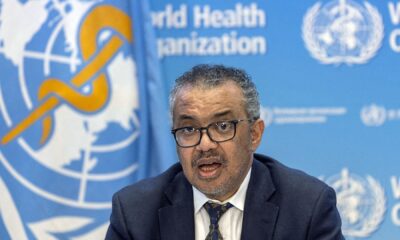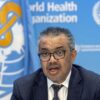Everything we know about the rare complications of dengue fever
Although officially out of the rainy season, cases of dengue fever in the country continue to increase dramatically. This year’s dengue cases resulted in severe symptoms and hospitalizations, all due to a new strain of the D2 virus. In addition, the overlap of dengue fever symptoms with COVID-19 makes it challenging to identify the right disease early and start treatment at the right time.
Fever, chills, muscle aches, and rash are typical symptoms of dengue fever. This condition is rarely fatal, but delaying treatment can lead to a more severe dengue hemorrhagic fever.
What is Dengue Hemorrhagic Fever?
Dengue fever is transmitted by biting an Aedes mosquito infected with one of the four dengue viruses. It can even occur when exposed to infected blood, but mosquito bites are more common.
Once infected with the virus, you can develop immunity to it for the rest of your life. However, this will not protect you from other types of viruses. A person can come into contact with all four types of dengue virus. Research shows that exposure to different dengue viruses makes a person more susceptible to dengue hemorrhagic fever. Some people even experience dengue fever after recovering from a dengue virus infection.
Symptoms of Dengue Hemorrhagic Fever
Symptoms of dengue hemorrhagic fever vary with the severity of the case. Mild cases of the disease can be:
- Bleeding under the skin
- Frequent vomiting
- stomach ache
- Mild, medium, or high temperature
- headache
- Nauseous
- Pain in muscles, bones, or joints
- skin rash
When you are recovering from dengue fever, suddenly new symptoms appear, which may also indicate dengue hemorrhagic fever. Call your doctor if you will witness:
- worry
- Acute or sudden fever
- Severe stomach ache
- Bleeding or bruising under the skin
- Cold or sticky skin
- Bleeding from the nose
Who is more susceptible to this disease?
Dengue fever, a mosquito-borne disease, can infect anyone and cause severe symptoms if ignored and treated slowly. The likelihood of developing dengue hemorrhagic fever is familiar with:
- Babies and young children
- Pregnant women
- Parent
- People with weak immune systems
How is this condition treated?
Depending on the severity of your condition, your doctor may choose one or two of the following treatment options:
- Over-the-counter or prescription pain management medication
- Electrolyte therapy
- Blood transfusion
- Oxygen therapy
All of these methods help control the symptoms of dengue fever reduction by allowing your body to heal naturally.






































